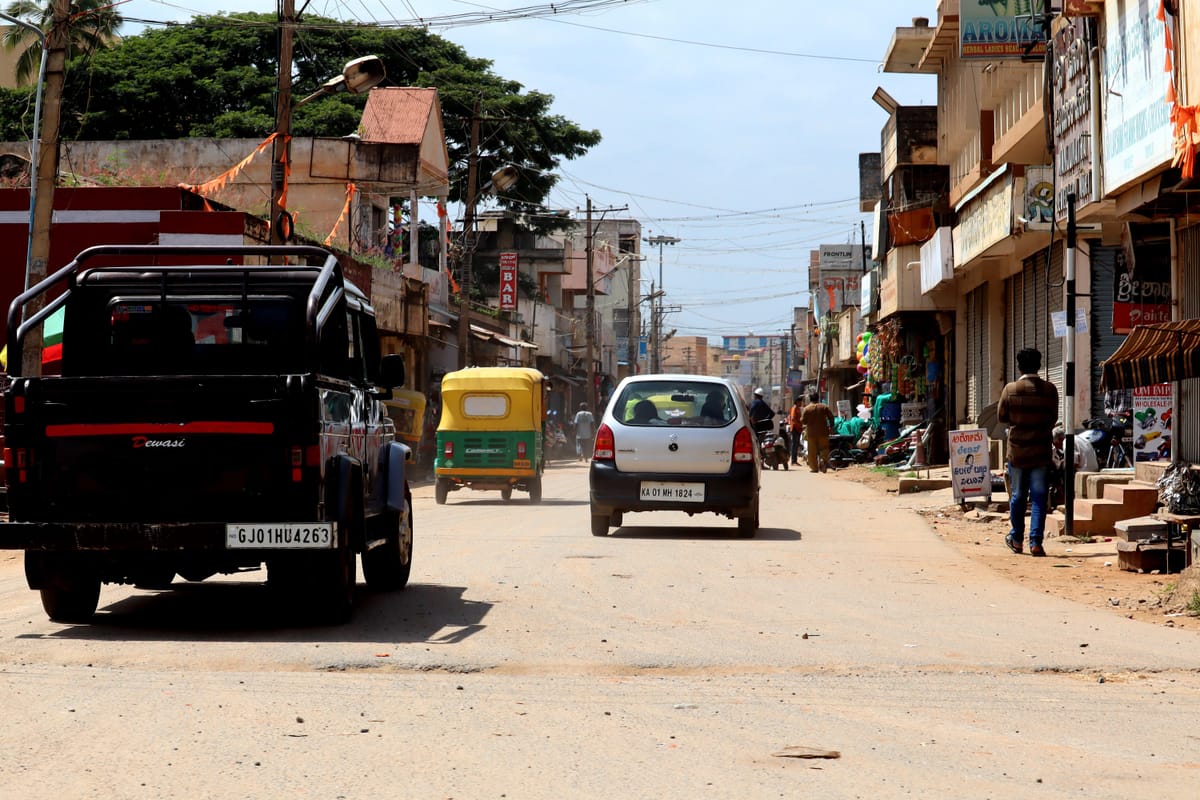Delhi Retreats: How Public Outcry Forced the Capital to Abandon Its Controversial Car Scrapping Plan
New Delhi's ambitious vehicle scrapping initiative has been shelved indefinitely after fierce public resistance, highlighting the complex challenges facing urban pollution control policies in India's megacities.
In a dramatic policy reversal that underscores the delicate balance between environmental goals and public sentiment, New Delhi authorities have withdrawn their controversial plan to mandate the scrapping of older vehicles following widespread public backlash. The decision marks a significant setback for the capital's air quality improvement efforts and raises important questions about policy implementation in one of the world's most polluted cities.
The Original Plan: Ambitious Goals Meet Ground Reality
The Delhi government's vehicle scrapping policy, announced earlier this year, aimed to remove vehicles older than 10-15 years from the city's roads. The initiative targeted both petrol and diesel vehicles, with authorities arguing that older cars contribute disproportionately to the capital's notorious air pollution crisis.
Under the proposed framework, vehicle owners would have faced mandatory scrapping of their older cars, with the government promising incentives for purchasing newer, less polluting vehicles. The policy was positioned as a crucial component of Delhi's broader strategy to combat air quality issues that regularly push pollution levels to hazardous extremes.
Public Resistance: Why Citizens Said No
The public response was swift and overwhelmingly negative. Vehicle owners across Delhi organized protests, filed petitions, and launched social media campaigns against what they termed an "arbitrary and unfair" policy.
Economic Burden Concerns Many citizens argued that the mandatory scrapping would impose an unreasonable financial burden on middle-class families who rely on older vehicles for daily transportation. "Not everyone can afford to buy a new car every 10 years," said Rajesh Kumar, a government employee who joined the protests. "My 12-year-old car runs perfectly fine and serves my family's needs."
Implementation Challenges Critics also pointed to the lack of adequate public transportation alternatives and questioned the government's ability to manage the massive logistics of scrapping millions of vehicles. The absence of sufficient electric vehicle charging infrastructure and the high cost of newer vehicles further fueled opposition.
Environmental Stakes: The Pollution Dilemma
Delhi's air quality crisis cannot be understated. The city regularly ranks among the world's most polluted capitals, with PM2.5 levels often exceeding WHO guidelines by 10-15 times during winter months. Vehicle emissions account for approximately 40% of the city's air pollution, making transportation policy a critical battleground for environmental health.
Recent data from the Central Pollution Control Board shows that Delhi recorded over 200 days of "poor" to "severe" air quality in 2023, with vehicular emissions being a primary contributor. The scrapping policy was designed to address this by removing an estimated 1.2 million older vehicles from Delhi's roads.
The Political Calculation
The policy withdrawal reflects the complex political calculations facing the Aam Aadmi Party (AAP) government in Delhi. With assembly elections on the horizon, the administration appears to have prioritized immediate public sentiment over long-term environmental goals.
Government sources, speaking on condition of anonymity, indicated that the fierce public opposition made the policy "politically untenable" despite its environmental merits. The decision to withdraw the plan was made following consultations with party leadership and assessment of potential electoral impact.
Looking Forward: Alternative Approaches
The policy reversal doesn't mean Delhi has abandoned its air quality improvement goals. Officials are now exploring alternative approaches, including:
- Enhanced public transportation: Expanding metro and bus networks to reduce private vehicle dependency
- Incentive-based programs: Voluntary vehicle scrapping with attractive financial incentives
- Electric vehicle promotion: Accelerated EV adoption through subsidies and infrastructure development
- Odd-even schemes: Temporary traffic restrictions during high pollution periods
The Broader Implications
Delhi's experience serves as a cautionary tale for policymakers across India's major cities grappling with similar environmental challenges. The episode highlights the critical importance of stakeholder consultation, gradual implementation, and robust alternative infrastructure before mandating significant lifestyle changes.
The withdrawal also raises questions about India's ability to meet its environmental commitments, including air quality targets and carbon emission reduction goals under international climate agreements.
Conclusion: Lessons in Policy Implementation
The Delhi car scrapping saga demonstrates that even well-intentioned environmental policies can fail without adequate public buy-in and supporting infrastructure. As India's cities continue to battle pollution crises, the challenge lies in developing sustainable solutions that balance environmental imperatives with economic realities and public acceptance.
Moving forward, successful urban environmental policies will require more nuanced approaches that prioritize stakeholder engagement, phased implementation, and comprehensive support systems. The question remains whether Delhi can find alternative pathways to cleaner air that citizens will embrace rather than resist.
